As the Baltic countries of Lithuania, Estonia and Latvia continue to solidify their position as frontrunners in the global fintech landscape, their success story serves as an inspiration for other nations grappling with the growing pains of fast developing fintech ecosystems.
By embracing a renewed determination for regulatory rigor, innovation, and security, these fast-rising nations are proving that with the right strategies, a rocky past can be transformed into limitless opportunity, fertile ground for collaboration, investment, technological advancements and economic growth.
Picture this: you’re at a bustling tech conference, surrounded by the brightest minds in the industry, and everyone is talking about the same thing – the Baltic region. This small European region has been making waves in the fintech industry, and it’s not slowing down anytime soon.
Similar to a scaleup that has achieved product-market fit and is experiencing rapid expansion, the Baltic countries of Lithuania, Estonia and Latvia, have established a thriving fintech ecosystem attracting attention from investors and entrepreneurs worldwide. Moreover, the Baltics are well-positioned to continue their upward trajectory in the fintech industry with a highly skilled workforce, favorable taxation, rigorous regulations, and a strong startup culture.
But that has not always been the case.
All three states have in recent years, been forced to overcome challenges related to compliance and money laundering. Reputations have been bruced, licensens have been suspended and the Baltic states have had to pull themeselves through scandals that have tarnished their aspiring ecosystems. In spite of these challenges the Baltics have demonstrated remarkable resilience and determination to overcome their past challenges, taking significant measure to overhaul their regulatory and supervisory functions and address these issues head on.
Recognizing the gravity of the situation, the Baltic states have implemented stringent anti-money laundering regulations, signaling their unwavering commitment to combating financial crimes. Moreover, they have actively increased collaboration and cooperation with international law enforcement agencies, demonstrating their proactive approach in tackling the issue at a global level and emerging as formidable players in the fintech arena.
In this article, we explore how the countries in the region are rising above this legacy and evolving into a brighter future as global fintech hubs.
“The Lithuanian fintech industry is poised to continue its growth trajectory over the next few years as it solidifies its position as a leading fintech hub in Europe.”
Vaiva Amulė
Head of Fintech Hub LT

Sustainable growth
Lithuania’s startup ecosystem is no longer in its infancy; it’s in the scaleup phase and growing exponentially. With a population of just 2.8 million, it is not only the most populated Baltic country but also a leading fintech ecosystem with 263 fintech companies registered as of the end of 2022 and the most licensed payment or electronic money institutions in the European Economic Area. Its relatively small size might make it easy to overlook this hidden gem in the European startup scene, but, investors are taking notice, and for good reason.
In 2022, Lithuanian startups attracted 295 million euros in investment. According to Dealroom, Lithuania is the second-fastest-growing startup ecosystem in Central and Eastern Europe, with a value that has steadily increased nearly 17 fold to 9.5 billion Euros, all between 2017 and 2022.
Many Lithuanian startups focus on sustainability and profitability, financing their development from profits rather than relying solely on investments. Half the founders use their funds or shareholders’ contributions, demonstrating a commitment to long-term success. As Vaiva Amulė, head of Fintech Hub LT, the main Fintech association in Lithuania puts it: “There is a focus on sustainable growth and developing business models that can be scaled.”
So, what does the future hold for Lithuania’s fintech ecosystem?
Strict but progressive regulator
The Lithuanian government has played a significant and proactive role in fostering the growth of the Fintech industry. Among these measures, a notable accomplishment has been the inclusion of fintechs in the Bank of Lithuania’s payment system, CENTROlink, which grants them access to the Single Euro Payments Area (SEPA). In addition, the government has created a Center of Excellence in Anti-Money-Laundering, the first public-private sector partnership in Europe, operating as a separate institution. Currently, the country is actively seeking to attract AMLA, the Anti-Money Laundering Authority of the European Union.
While Lithuania has made significant progress in developing a favorable regulatory environment for fintech, there are still some challenges that need to be addressed. As the Lithuanian fintech industry continues to mature, it will be essential for players to strike a balance between regulatory compliance and growth.
“The Lithuanian regulatory environment for fintech has indeed evolved over time and is now much stricter than before. As the industry grows and matures, regulators have shifted their focus towards ensuring stability and minimizing risks in the financial sector. This has led to more rigorous compliance requirements, which can be challenging for fintech companies to navigate.” Says Amulė.
Recommended for you:Get your copy of the Nordic Fintech Magazine Summer Edition 2023
She continues: “It is crucial to note that these measures are sometimes necessary for the long-term stability of the industry. Ongoing collaboration between fintech companies, regulatory bodies, and traditional financial institutions will be needed to create an environment that fosters innovation while ensuring the safety and stability of the financial system.”
Towards the end of last year, Lithuania implemented significant changes to the laws governing virtual asset service providers (VASPs) in order to enhance risk management and ensure effective prevention of money laundering within the country. Under the new regulations, companies engaged in such activities are required to maintain an initial capital of at least 125,000 euros. As a result of this increased financial requirement, the number of VASPs operating in Lithuania has decreased from approximately 840 to around 300.
In addition to the regulatory environment, Lithuania offers various other advantages to fintech companies. The country has a highly educated workforce, with many people skilled in technology and finance. Lithuania’s cost of living is relatively low compared to Northern European countries, making it an attractive location for startups looking to keep their costs down while scaling and enjoying direct access to the European market and financial system.
“The Lithuanian fintech industry is poised to continue its growth trajectory over the next few years as it solidifies its position as a leading fintech hub in Europe. The key drivers of this change will include a continued focus on innovation, collaboration between institutions and the market, and the ability to adapt to new and upcoming regulations.”
“After the successful growth of Estonian unicorns, e.g. Skype, Wise, Veriff, we have seen the collected knowledge and financial resources are widely used for planting new companies in Estonia, hopefully, new unicorns as well”
Kaido Saar
Chairman of Finance Estonia and co-founder and CEO of Mifundo

Breaking the waves
Like Lithuania, Estonia is experiencing an expanding fintech boom. Catalysed by an impressive lineup of unicorn founders who upon exiting their organisations have chosen to reinvest capital, and know how in the country, this small nation of only 1.3 million inhabitant has already been the launchpad for 10 unicorns and a line of hopeful “soonicorns” to follow. With the highest density of unicorns per capita in Europe, Estonia has claimed the “unicorn stable” title in the Nordics and Baltics.
With a young and highly digital population, Estonia’s emphasis on STEM (science, technology, engineering and maths), a culture of pragmatism and tight knit startup ecosystem, offers a glimpse into the success of the country’s ascending Fintech scene. But it doesn’t end there.
According to Kaido Saar, chairman of Finance Estonia and co-founder and CEO of Mifundo, a data solution for cross border credit products. One of the strengths of Estonia’s fintech ecosystem today is its regulatory environment, which is known for being both innovative and efficient. Saar explains:
“Estonia is still a small country. Therefore, it is easy to set up the contacts. Moreover, regulatory institutions are ready to meet with fintech companies, if relevant, and provide feedback on licensing if required.”
Openness and accessibility to and from the governmental institutions are essential to the future of Estonian fintech.
“We have actively worked with Estonian governmental institutions to design and build the dedicated Fintech Strategy for Estonia. Hopefully, it will soon be approved by the government and launched later this year,” says Saar when asked about the future of Estonian fintech.
But Estonia has experienced growing pains. In 2017, the Danske Bank Estonian branch was embroiled in a major money laundering scandal involving billions of euros, which led to investigations and reforms by the government and financial regulators.
“The Estonian Financial Supervision Authorities stopped the activities in the branch and forced Danske Bank to quit operations in Estonia. The supervisors gained good experience to advise other regulators and Estonian financial companies dealing with related matters,” says Saar.
While the scandal involving a foreign company’s negligence in fulfilling its regulatory duties brought adverse effects to Estonia’s financial sector reputation, the country has swiftly turned crisis into opportunity, sparkin a surge in demand for companies offering cutting-edge solutions in compliance and anti-money laundering measures.
One standout example is Salv, a leading firm providing innovative services to assist financial institutions in meeting the ever-increasing regulatory requirements and effectively combatting money laundering.
“New business models have also appeared. For example, so-called climate fintechs and carbon credits-related companies have widely popped up on the market. Like Single.Earth, Arbonics, and Kwota. Also, strong growth is visible in regtech (regulatory technologies red.) and usage of open banking in Estonia,” says Saar.
While the initial scandal may have tarnished Estonia’s financial sector reputation, it has served as a catalyst for positive change, allowing Estonia to emerge stronger and more resilient, solidifying its position as a global leader in innovative financial technologies.
Recommended for you:Get your copy of the Nordic Fintech Magazine Summer Edition 2023
The perfect testbed
As Estonia is a small country, each newly founded fintech company must be international from the beginning, says Saar.
“Besides global ambitions, we have a strong knowledge base and supportive startup ecosystem which helps fintech companies to grow. After the successful growth of Estonian unicorns, e.g. Skype, Wise, Veriff, we have seen the collected knowledge and financial resources are widely used for planting new companies in Estonia, hopefully, new unicorns as well,” he adds.
Estonia holds several records for the number of startups and unicorns per capita. According to Invest Estonia, there are more than 1.000 startups and 7,7 unicorns per million per capita.
As Estonia is a small and open country, our fintechs are constantly searching for partnerships with other players in the global ecosystem. Therefore, Estonian fintechs can provide high-level technology and people with the right spirit behind the technology.
“Estonia is a perfect testbed for new technologies due to the size of the country and people’s willingness to consume new solutions. Still, scaling out the global partners are highly essential, but due to the international mindset, Estonian fintechs have the potential to shape the future of the financial industry,” says Saar.
Estonia’s fintech industry is thriving despite the country’s challenges. The industry’s focus on sustainability, transparency, innovation, and a supportive regulatory environment, are key factors driving growth in the sector.
“The financial crisis in 2008 was a turning point for the Latvian Fintech industry, We are now at a point where blockchain and crypto industries are seen as a valuable asset and a usable technology solution”
Ričards Švītiņš,
The Investment and Development Agency of Latvia (LIAA).

Coping with a crisis
The governmental support to cope and rise from a crisis has also pushed the fintech ecosystem forward in the country in the middle of the Baltic region. As a result, Latvia has been growing and evolving in recent years, thanks to various factors such as the emergence of innovative solutions and the support of government institutions. To understand the current state of the industry and its prospects, we spoke with Ričards Švītiņš, a leading expert from the Investment and Development Agency of Latvia (LIAA).
“The financial crisis in 2008 was a turning point for the Latvian Fintech industry” says Švītiņš,. At that time, alternative financial institutions began to emerge, offering fast, innovative credit solutions. Over time, the industry matured, and new trends, such as blockchain and crypto, emerged.
“We are now at a point where blockchain and crypto industries are seen as a valuable asset and a usable technology solution,” Švītiņš says.
The country implements different European Union strategies to support startups, including those focused on science-intensive and DeepTech business ideas – including in the fintech industry.
“LIAA works with state support programs for companies of different sizes and industries. Although the state does not offer specific support programs for fintech companies, they can apply and benefit from the support programs offered to all startups,” Švītiņš says.
Today, The Innovation Hub and Regulatory Sandbox, provided by the Latvian Financial and Capital Market Commission (FCMC), offer professional support and consultancy services to all market players on existing and upcoming regulations.
A future crypto stronghold
Despite the Latvian Fintech industry’s success, it still faces numerous challenges, according to Švītiņš. This includes regulatory and licensing processes, company operational work, and anti-money laundering.
“Everyone is up for the task, and there are ongoing collaborations between Latvian Fintech companies and other players in the global Fintech ecosystem. In 2022, Latvia hosted its first-ever FinTech Forum, where industry players from Latvia and abroad could network, discuss new ideas, and address the challenges,” says Švītiņš.
Looking ahead, Švītiņš believes that the European wide Markets in Crypto-Assets (MiCA) Regulation will be a major development in the industry. This regulation will establish crypto as a legitimate and regulated industry and help many entrepreneurs in the field to flourish. Additionally, with approximately 20 per cent of all Latvian startups operating within the fintech sector, the country’s fintech industry will continue to expand and innovate, especially in blockchain and crypto-assets.



